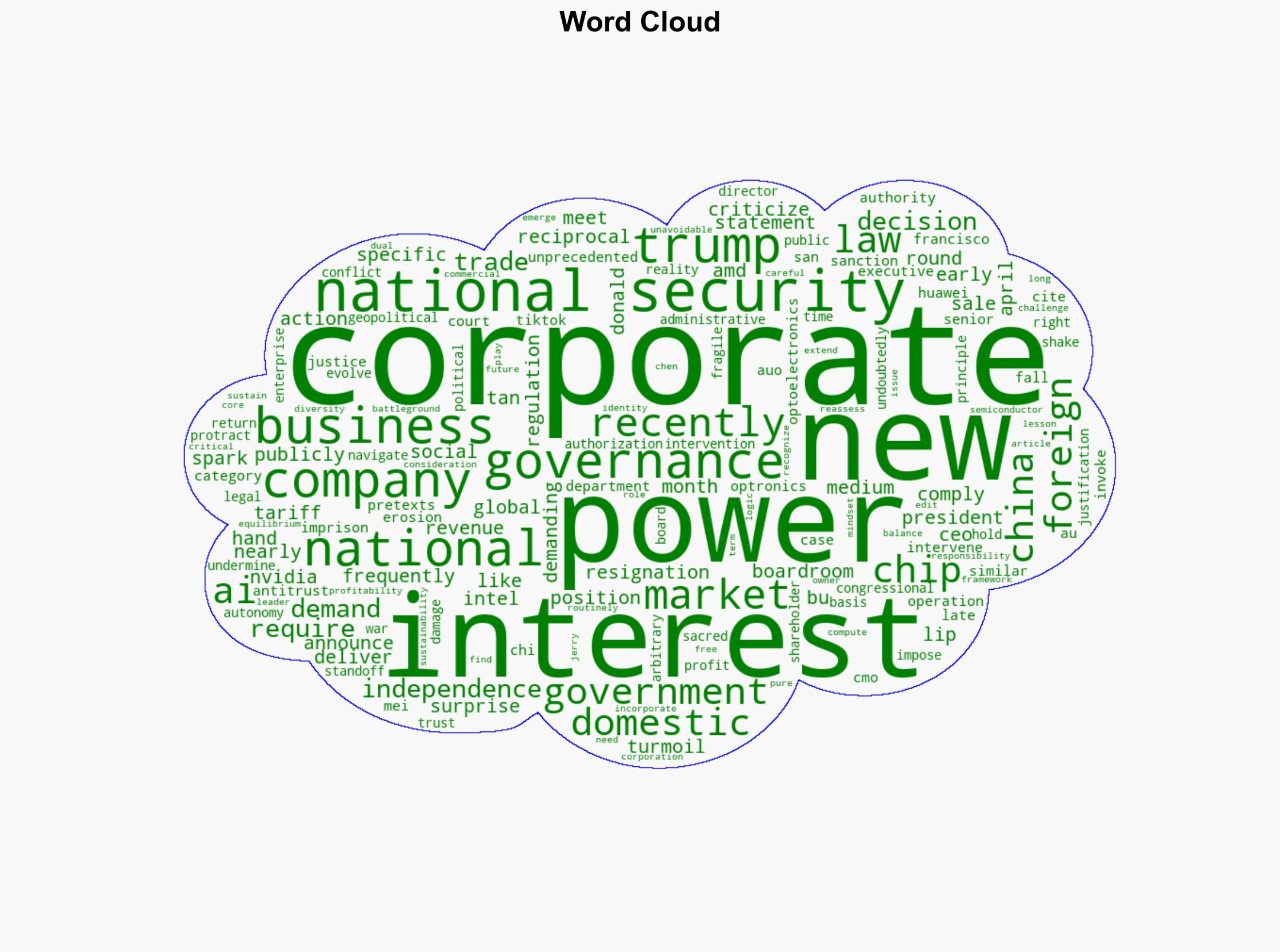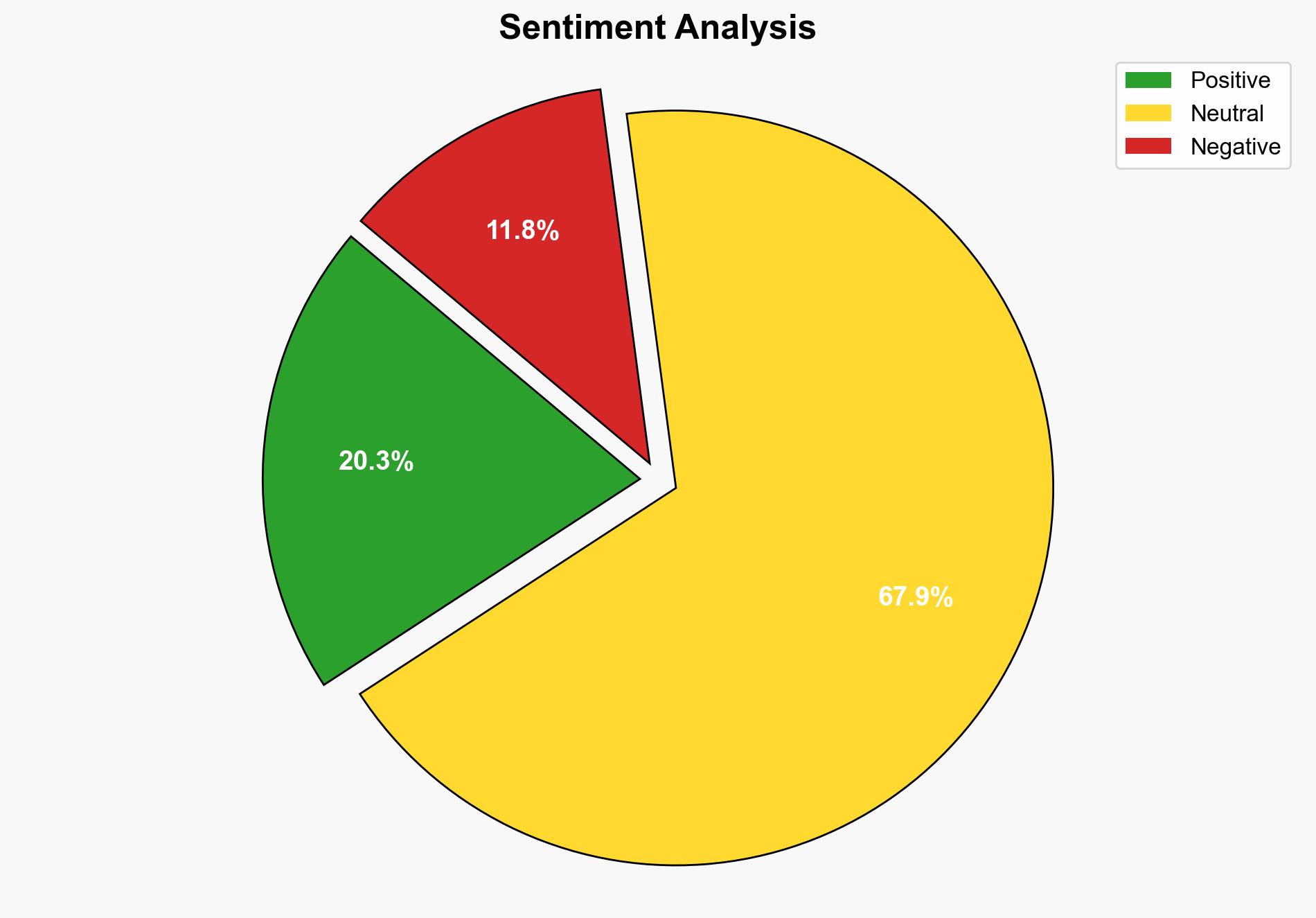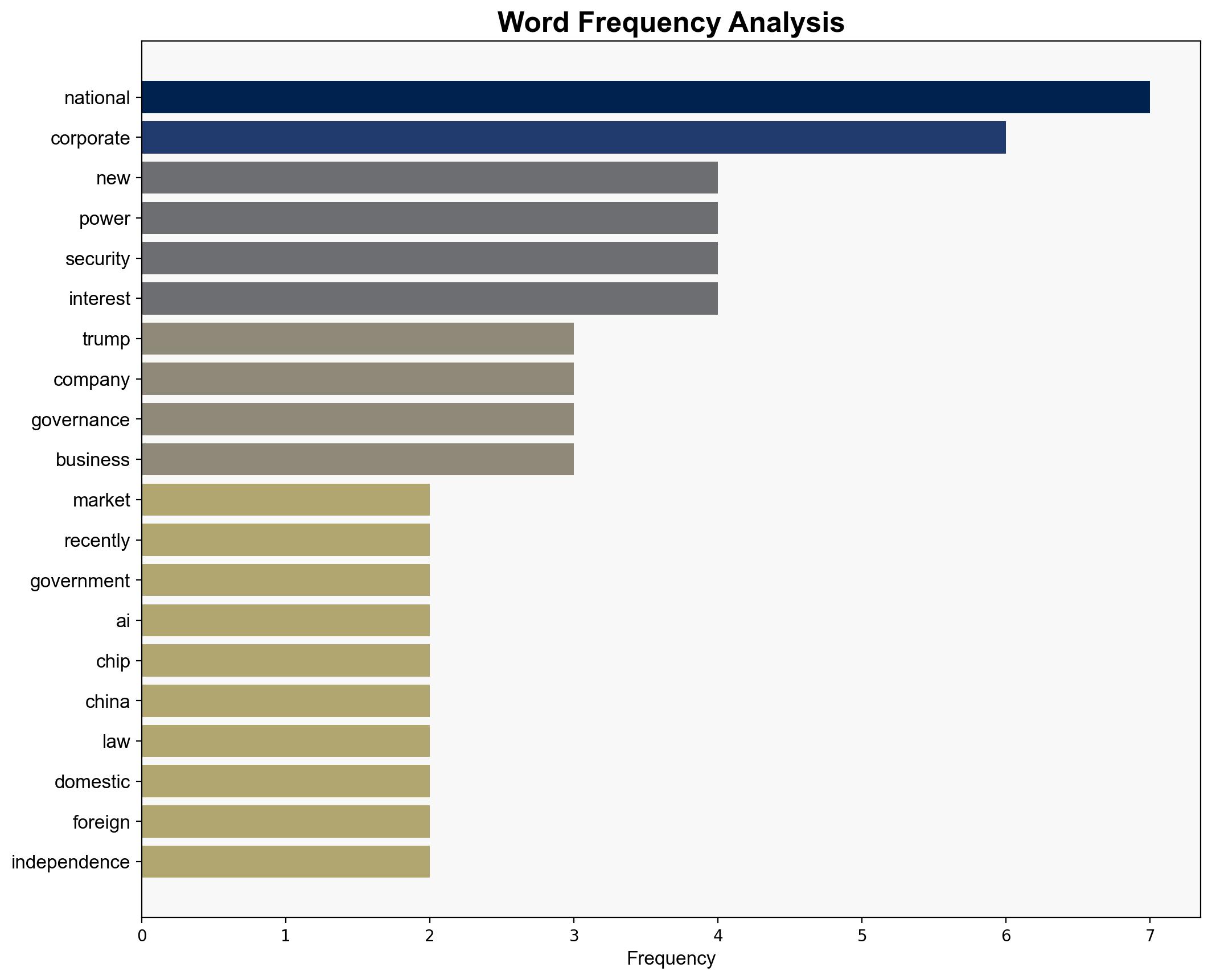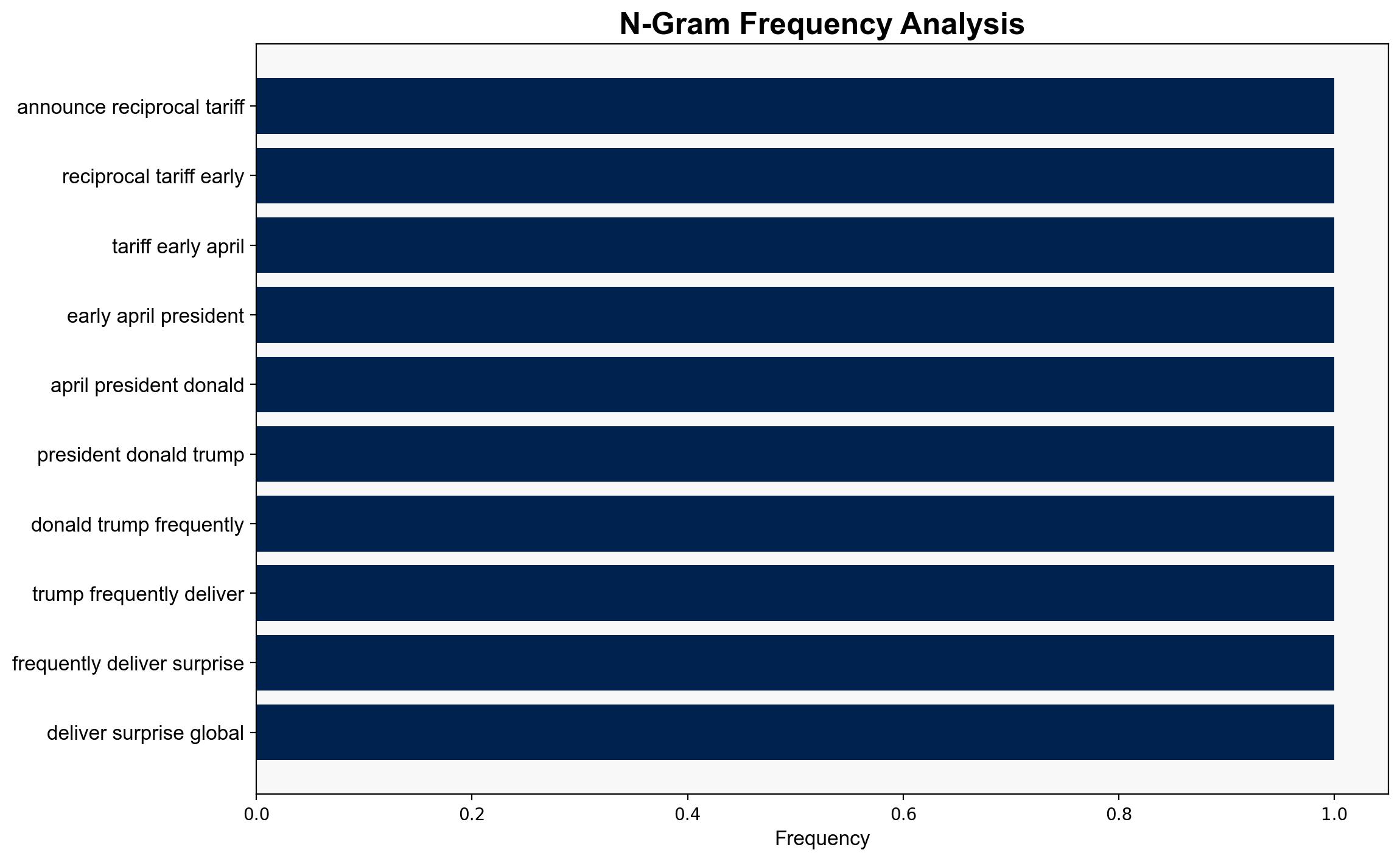Trump’s corporate crackdown When national security overrides boardroom independence – Digitimes
Published on: 2025-08-14
Intelligence Report: Trump’s corporate crackdown When national security overrides boardroom independence – Digitimes
1. BLUF (Bottom Line Up Front)
The strategic judgment indicates a high likelihood that national security concerns will increasingly influence corporate governance, particularly in technology sectors. The hypothesis that the U.S. government will continue to assert control over corporate decisions under the guise of national security is better supported. Recommended action includes preparing for heightened regulatory scrutiny and potential shifts in international trade relations.
2. Competing Hypotheses
1. **Hypothesis A**: The U.S. government, under the pretext of national security, will continue to intervene in corporate governance, particularly in the tech sector, to control strategic technologies and maintain geopolitical dominance.
2. **Hypothesis B**: The interventions are primarily a short-term political strategy aimed at gaining leverage in trade negotiations, and the focus on national security is overstated.
Using ACH 2.0, Hypothesis A is more supported due to consistent patterns of government actions targeting tech companies and the strategic importance of AI and semiconductors in national security.
3. Key Assumptions and Red Flags
– **Assumptions**: It is assumed that national security is the primary driver of government interventions. There is an assumption that corporate governance can adapt to these pressures without significant economic fallout.
– **Red Flags**: Potential bias in interpreting government actions as purely security-driven without considering economic motivations. Lack of transparency in government decision-making processes raises questions about true intentions.
4. Implications and Strategic Risks
The pattern of government intervention could lead to increased regulatory burdens and compliance costs for companies, particularly in tech. This may result in reduced foreign investment and strained international relations. The geopolitical landscape could see further polarization, with countries aligning based on tech sovereignty and national security interests.
5. Recommendations and Outlook
- **Mitigation**: Corporations should enhance compliance frameworks and engage in proactive dialogue with regulators to anticipate and adapt to policy changes.
- **Opportunities**: Invest in domestic R&D to reduce dependency on foreign technology and align with national security priorities.
- **Scenario Projections**:
– **Best Case**: Harmonization of national security and corporate interests leads to innovation and economic growth.
– **Worst Case**: Escalation of trade wars and tech decoupling results in global economic instability.
– **Most Likely**: Continued tension with periodic regulatory adjustments as governments and corporations negotiate new norms.
6. Key Individuals and Entities
– Donald Trump
– Lip-Bu Tan
– Companies: Intel, Nvidia, AMD, Huawei, TikTok
7. Thematic Tags
national security threats, corporate governance, technology regulation, geopolitical strategy





